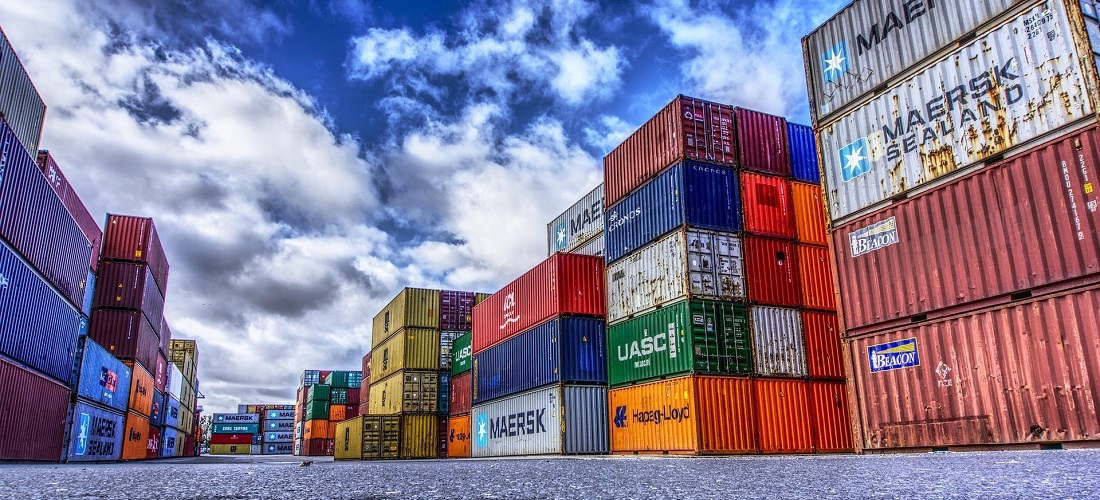
Trade balance shows a US$ 877.2 deficit in the 3rd week of January
Jan, 24, 2022 Posted by Gabriel MalheirosWeek 202204
The Brazilian trade flow (the sum of exports and imports) increased by 28% in the third week of January, reaching US$ 28.91 billion. According to data released this Monday (24/1) by the Foreign Trade Secretariat (Secex) of the Ministry of Economy, exports increased 28.4 % on a daily basis in comparison to January 2021, totaling US$ 14,39 billion, while imports increased 27.6 %, totaling US$ 14.51 billion. As a result, the trade balance ended the third week with a deficit of US$ 117 million in the month’s total.
The accumulated balance reflected the performance of the balance in the third week when there was a deficit of US$ 877 million due to US$ 4.503 billion in exports and US$ 5.38 billion in imports. The value of the trade flow was $9.883 billion USD.
Exports
The month’s export performance, up to the third week, was driven by a 93 percent rise in agribusiness sales, which totaled US$ 2.35 billion. The Extractive Industry saw a 14.2 % decrease in sales, reaching US$ 3.05 billion, while the Manufacturing Industry saw a 39.9 percent growth, reaching US$ 8.93 billion.
In terms of agribusiness, the highlights were: unground corn, with the exception of sweet corn (+24.4%), unroasted coffee (+38.5%), and soybeans (+4,896.7%).
The Extractive Industry demonstrated an increase in sales of crude minerals (+11.5%), aluminum ores and their by-products (+34.6%), and crude oil or crude bituminous minerals (+32.6% ). However, sales of iron ore and derivates (-35.6%), copper ores, (-72.3%) and nickel ores and their concentrates (-100%) decreased.
On the Manufacturing Industry side, exports of fresh, chilled, or frozen beef grew (+52.8%), as did petroleum fuel oils or bituminous minerals, excluding crude oils (+94%) and semi-finished products, ingots, and other primary forms of iron or steel (+175.5%)
Imports
In imports, Secex registered a 16.7% drop in purchases of agricultural products, which totaled US$ 259.35 million until the third week of the month. In the Extractive Industry, imports grew 384.2%, reaching US$ 1.98 billion, while the Manufacturing Industry increased purchases by 15.3%, reaching US$ 11.96 billion.
The growth in imports was influenced by the increase in purchases of whole live, dead, or chilled fish (+50.8%), latex, natural rubber, balata, gutta-percha, guayule, natural gums (+52.9%), and raw cotton (+807.4%) in Agriculture. The sector average was brought downward, however, by the decline in purchases of unground wheat and rye (-24.2%), fresh or dried non-oleaginous fruits and nuts (-45.4%), and soybeans (-88 .8%).
In the Extractive Industry, the growth in imports mainly reflected purchases of coal, including the powder form, but excluding agglomerated coal (+407.3%), crude petroleum, or bituminous mineral oils (+300.2%) and, natural gases, liquefied or not (+668.8%).
In the Manufacturing Industry, the highlights were the purchases of petroleum fuel oils or bituminous minerals, excluding crude oils (+69.9%), medicines and pharmaceutical products, except veterinary ones (+82%), and fertilizers or fertilizers chemicals, except raw fertilizers (+54.3%).
-
Grains
May, 26, 2023
0
Peru’s decreased rice imports impact Brazil and Uruguay’s export markets
-
Ports and Terminals
Jul, 15, 2022
0
New Codesa owners prioritize deeper draft at the Port of Vitória
-
Ports and Terminals
Nov, 21, 2024
0
Billion-Dollar Sales of Companies Operating at the Port of Santos Spark Debate in Brazil; Understand
-
Trade Regulations
Jul, 02, 2024
0
Mexico greenlights poultry genetic material imports from Brazil



